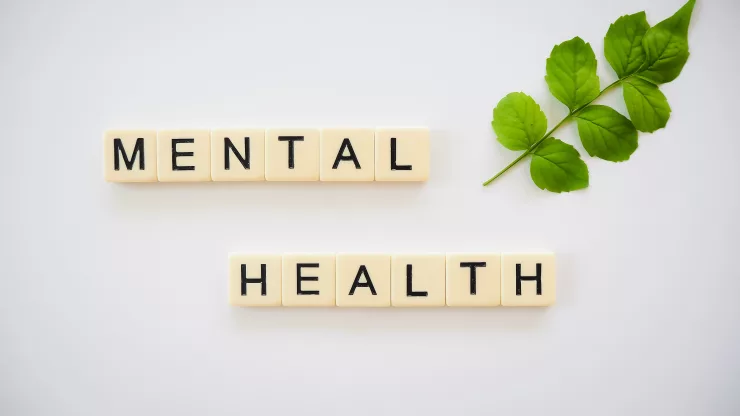The Power of Exercise for Happiness
We all want to be happy, but sometimes life can get in the way. Fortunately, there is a simple solution that can help boost your mood and improve your overall well-being: exercise.
Regular physical activity has been shown to have a significant impact on mental health, helping to reduce stress, anxiety, and depression while improving self-esteem and cognitive function.
In this article, we’ll explore the science behind exercise and mood-boosting, the benefits of regular exercise for mental health, and how to incorporate exercise into your daily routine.
Jump to Section
The Science Behind Exercise and Mood Boosting
Exercise has long been known to have physical health benefits, but recent research has shown that it can also have a significant impact on mental health.
When we exercise, our bodies release endorphins, which are natural chemicals that help to reduce pain and improve mood.
This is often referred to as the "runner’s high," but it can be achieved through any form of physical activity.
In addition to endorphins, exercise also increases the production of neurotransmitters like serotonin and dopamine, which are associated with feelings of happiness and well-being. Exercise has also been shown to reduce levels of the stress hormone cortisol, which can contribute to anxiety and depression.
The Benefits of Regular Exercise for Mental Health
The benefits of regular exercise for mental health are numerous. Studies have shown that exercise can help to:
- Reduce symptoms of depression and anxiety
- Improve mood and self-esteem
- Increase cognitive function and memory
- Reduce stress levels
- Improve sleep quality
- Boost overall well-being
Regular exercise has also been shown to have long-term benefits for mental health, helping to prevent the onset of depression and anxiety in the first place.
How to Incorporate Exercise into Your Daily Routine
Incorporating exercise into your daily routine doesn’t have to be difficult. There are many ways to get moving, even if you have a busy schedule.
Here are some tips:
- Start small: Begin with just 10-15 minutes of exercise per day, and gradually increase the duration and intensity over time.
- Make it fun: Choose activities that you enjoy, such as dancing, hiking, or swimming.
- Find a workout buddy: Having a friend or partner to exercise with can help to keep you motivated and accountable.
- Mix it up: Vary your routine to keep things interesting and prevent boredom.
- Make it a habit: Schedule exercise into your daily routine, just like you would any other appointment or activity.
Tips for Staying Motivated to Exercise for Happiness
Staying motivated to exercise can be challenging, but there are several strategies that can help:
- Set goals: Having a specific goal in mind can help to keep you focused and motivated.
- Reward yourself: Treat yourself to something special after a workout, such as a healthy snack or a relaxing bath.
- Track your progress: Keep a record of your workouts to track your progress and celebrate your achievements.
- Get support: Join a fitness class or online community to connect with others who share your goals and can offer support and encouragement.
- Be kind to yourself: Don’t beat yourself up if you miss a workout or have a bad day. Remember that any exercise is better than none.
The Happiness Workout: A Sample Exercise Routine
Here’s a sample exercise routine that can help boost your mood and improve your overall well-being:
- Warm-up: 5-10 minutes of light cardio, such as jogging in place or jumping jacks
- Strength training: 20-30 minutes of strength training exercises, such as squats, lunges, push-ups, and planks
- Cardio: 20-30 minutes of moderate-intensity cardio, such as running, cycling, or swimming
- Cool-down: 5-10 minutes of stretching and relaxation exercises, such as yoga or meditation
Remember to listen to your body and adjust the intensity and duration of the workout as needed.
FAQ
What is the best time of day to exercise for happiness?
The best time of day to exercise for happiness is the time that works best for you.
Some people prefer to exercise in the morning to start their day off on the right foot, while others prefer to exercise in the evening to unwind after a long day.
Experiment with different times of day to find what works best for you.
How often should I exercise for happiness?
It’s recommended to exercise for at least 30 minutes per day, five days per week, for optimal mental health benefits. However, any amount of exercise is better than none, so start with what you can manage and gradually increase the duration and intensity over time.
Can I still benefit from exercise if I don’t enjoy it?
Yes, you can still benefit from exercise even if you don’t enjoy it. The key is to find activities that you can tolerate and gradually increase your level of enjoyment over time.
It’s also important to remember that the mental health benefits of exercise are worth the effort, even if the activity itself isn’t always enjoyable.

With a deep passion for personal development, Ben has dedicated his career to inspiring and guiding others on their journey towards self-improvement.
His love for learning and sharing knowledge about personal growth strategies, mindfulness, and goal-setting principles has led him to create My Virtual Life Coach.
Contact Ben at [email protected] for assistance.




